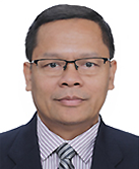
Sri Juari Santosa
Professor of Department of Chemistry, Faculty of Mathematics and Natural Sciences, Gadjah Mada University
Hitachi Scholarship Period : April 1991 to March 1996 for Master and Doctoral degree at Keio University
The Hitachi Global Foundation Asia Innovation Award Best Innovation Award Winner for 2022
I am currently engaged in scientific research on providing safe water sources for drinking and domestic use and developing portable equipment to detect hazardous species that pose risks to human health and the environment.
Safe water production is achieved using a synthesized anionic clay-based material from the layered double hydroxides class, which is easy to produce, cost-effective, and reusable. Meanwhile, the portable detection device employs a multi-connectivity colorimetric method with digital imaging and AI integration, enabling rapid, real-time, and in-situ analysis without requiring skilled operators or a stable electric power supply. Consequently, this affordable and accessible equipment benefits a broad range of users.
The scholarship I received from the Hitachi Scholarship Foundation has had a profound impact on my career. At a time when scholarships were extremely difficult for Indonesian students to obtain, this scholarship was like a lifesaver, enabling me to pursue my studies at a university in a developed country like Japan. Beyond academic knowledge, I also gained valuable life lessons on discipline, hard work, commitment, and respect for others, which have become essential assets in building my career.
The Best Asian Innovation Award, which I received in 2022, further motivated me to continue engaging in sustainable scientific activities aimed at benefiting the society.
Hiroshima is one of my favorite cities, especially because of the opportunity to visit the Genbaku Dome, a monument consisting of the remnants of a building destroyed by the atomic bomb explosion. This monument serves as a symbol of humanity's hope for world peace and the elimination of nuclear weapons. The deliberate preservation of the Genbaku Dome serves as a constant reminder of the disaster that can result from the reckless use of scientific and technological advancements. That message continues to resonate in my mind, reinforcing my determination and hope that my efforts will always bring benefits to society.
The first impressive event I experienced was when I had just arrived at The Hitachi Scholarship Foundation office after a long journey from Indonesia and was invited to lunch near Tokyo Station. I was surprised to find that there were no spoons available–only chopsticks. Since I had never used chopsticks before, I struggled to eat with them.
The second impressive event happened in late January, about four months after I arrived in Japan, when a heavy snowfall occurred. Spontaneously, I ran out of the laboratory, mesmerized by the snow-covered scenery, and started playing with the snow. Seeing this, my academic advisor seemed to understand my excitement and felt sorry that I was outside alone. As a result, he instructed all the students in the lab to go out and join me in playing in the snow.
Like the Hitachi Scholarship Foundation that has been a trendsetter in the past by providing opportunities for outstanding young generations in Southeast Asia to pursue knowledge and develop their careers, I also hope that the Hitachi Global Science Foundation can continue this mission. Furthermore, I hope it can play an active role in providing facilities and resources for scientists from Asia, especially Southeast Asia, to contribute on the international stage.
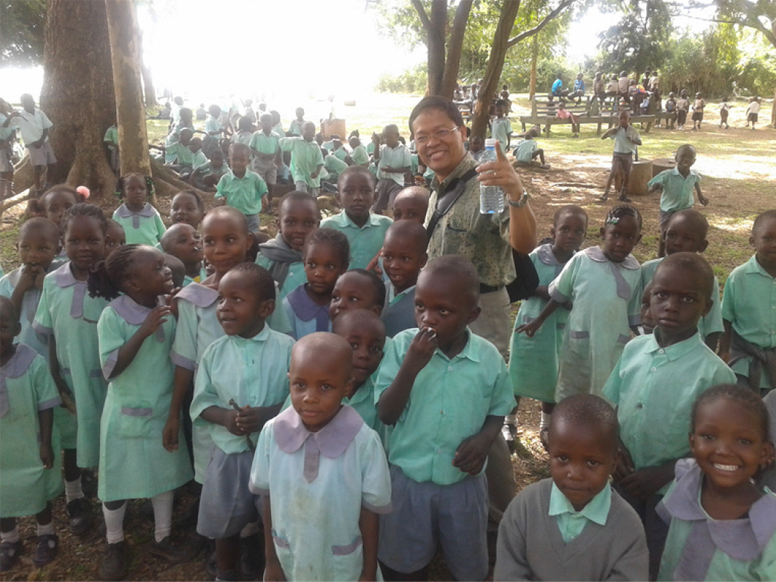
Providing awareness on the importance of clean water to elementary school students in Kisumu, Kenya, during the UNESCO/DAAD-Alumni Conference “Water in Africa,” organized in collaboration with Maseno University, Bondo University College, the Excellence Center for Exchange and Development (EXCEED), DAAD, the Federal Ministry for Economic Cooperation and Development (Germany), and UNESCO, October 1–3, 2012.
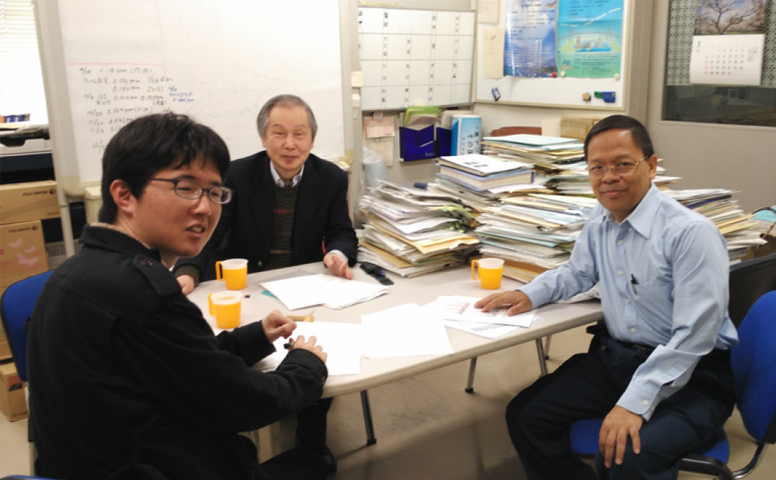
Discussion of research collaboration related to Monitoring Particulate Matters and Aerosols in Yogyakarta, Indonesia, with Prof. Shigeru Tanaka from Keio University, April 2016.
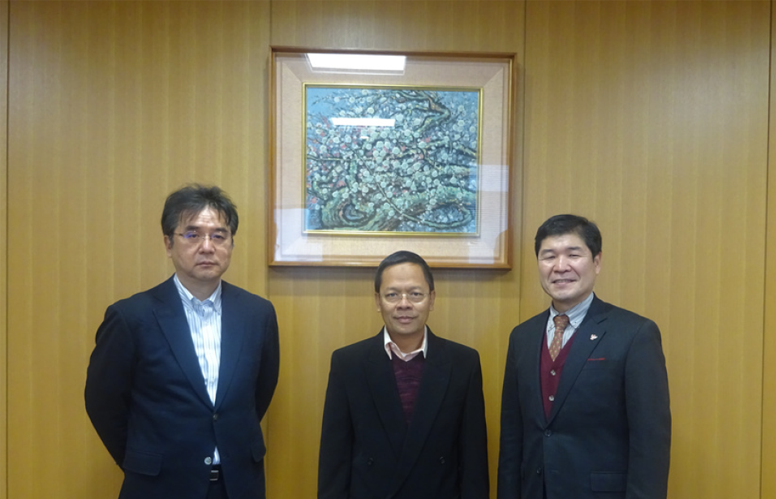
Discussing the planning of the International Conference on Ion Exchange 2018 in Yogyakarta, Indonesia, with Prof. Takeshi Hayashita, President of Sophia University, and Prof. Shogo Shimazu, Chairman of the Japan Association on Ion Exchange, in March 2017.
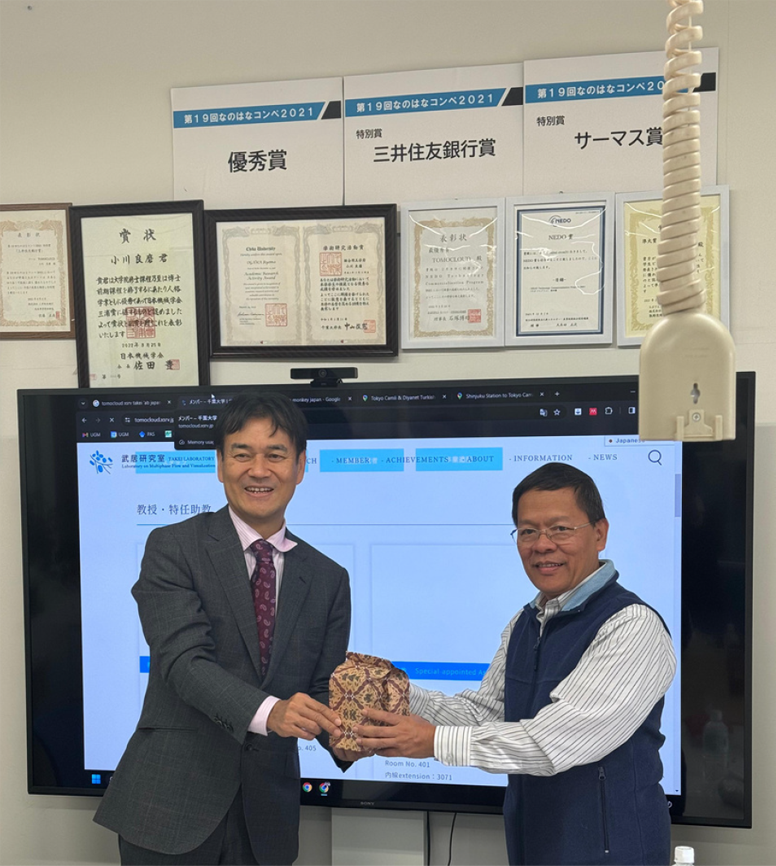
Visiting the laboratory of Prof. Masahiro Takei, Vice President for Research and Academic-Industrial Collaboration, Chiba University, to discuss academic collaboration covering research and student and staff exchange, in December 2023.
This English newsletter, published several times a year, shares updates from The Hitachi Global Foundation, including recent activities and news from our Scholars. If you're interested, we warmly invite you to subscribe!
The Hitachi Global Foundation
Office of The Hitachi Global Foundation Asia Innovation Award